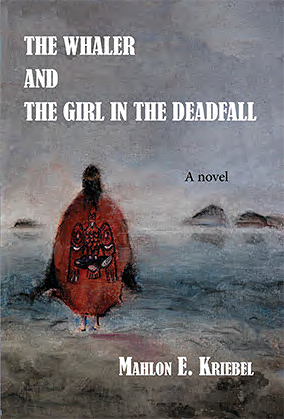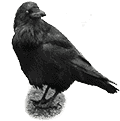The Whaler and the Girl in the Deadfall by Mahlon E. Kriebel

A ten-man whaling crew, representing many coastal and one inland tribe, train secretly, and when the time is ripe, they’re ready to row their hand-crafted canoe through the night to intercept a gray whale migration in the north Pacific Ocean. After a successful hunt they are taken into custody by the US Coast Guard and jailed. Environmental lawyer and whale lover, Alana Svoboda, who moved to Seattle on a quest to solve the mystery of her grandfather’s disappearance, is chosen to defend the whalers in federal court. For Quanah, the blond Makah whaler and crew leader, the “taking of whale” is part of his quest to prove his Indian-ness, connect with his ancestral heritage, and bring cohesion to coastal tribes. As Alana decides how to defend him, she learns about the west-coast Indians, whales, the Circle of Life—and herself.


$9.00

$21.00
The village of Neah Bay is covered by tumbling, heavy clouds, bursting with moisture. Quanah watches sheet lightning release a downpour, closing the harbor from the Strait of Juan de Fuca. He ignores these ominous signs….
“So begins the first of numerous encounters in the Pacific Northwest and beyond that transport readers into mysterious worlds where water meets land amidst tensions past and present. The characters inhabiting Mahlon Kriebel’s novel bring into focus the dramatic contrast between 21st century federal law and wider societal norms with the ancient whale hunting traditions of the native coastal Makah people. Environmental lawyer-activist Alana Svoboda takes up the case of the young Makah whaler, Quanah, and his crew in an adventure that affirms the abiding values of friendship, commitment, and tradition.
“So begins the first of numerous encounters in the Pacific Northwest and beyond that transport readers into mysterious worlds where water meets land amidst tensions past and present. The characters inhabiting Mahlon Kriebel’s novel bring into focus the dramatic contrast between 21st century federal law and wider societal norms with the ancient whale hunting traditions of the native coastal Makah people. Environmental lawyer-activist Alana Svoboda takes up the case of the young Makah whaler, Quanah, and his crew in an adventure that affirms the abiding values of friendship, commitment, and tradition.
The author uses his unique understanding of the myths, culture and current plight of the Northwest Coastal Indians to create a novel depicting the clash and ultimate acceptance of two societies trying to subsist in one environment. His vast knowledge of the geography of the region makes the sea and the islands active characters in the narrative.
The tension between Alana, the white lawyer, researching a 40-year-old disappearance and Quanah, the half-breed whaling captain, trying to reconcile his ‘Indian-ness’ comes to a compelling and satisfying completion as the two cultures mesh in a thought-provoking climax.
The tension between Alana, the white lawyer, researching a 40-year-old disappearance and Quanah, the half-breed whaling captain, trying to reconcile his ‘Indian-ness’ comes to a compelling and satisfying completion as the two cultures mesh in a thought-provoking climax.
The Whaler And The Girl In The Deadfall’ is a well written and thoroughly researched tale of cultural history, loss and contemporary issues. Mr. Kriebel’s characters are complex and believable. This book underscores how tragic cultural loss can be to Tribal identity. The cultural clashes are factual in the presentation of differing perspectives. I highly recommend this book for anyone who desires to look further into the dynamics of cultural practices and preservation.
Mahlon Kriebel’s work is sensitive to Native people’s struggles and culture, is as close to historical fact as possible, and yet has the creativity of an artist writer to make it an interesting addition for all readers.
“The author has had the patience and humbleness to endear himself to the Native communities with whom he interacts.
“The author has had the patience and humbleness to endear himself to the Native communities with whom he interacts.
A wise and passionate homage to traditional whaling and its importance to Native American cultural identity. Beautifully written, strikingly illustrated, and deeply researched, Kriebel’s novel provides an enlightened perspective on conquest and assimilation, bringing ancient practices alive with dramatic storytelling and a keen eye for natural history. Impressive in scope, the book is an artful melding of the past, present, and the uncertain future of a proud people clinging tenuously to their land, their language, and their way of life.
We found The Whaler and the Girl in the Deadfall to be a fine blending of environmental Indian knowledge, conflicting White man’s laws and subtle romance.
The Native Americans’ experience was and still is, although to a lesser extent, miserable. The author’s presentation of their attitudes towards the white man is convincing and informative.
“The discussions of brain function, self-awareness, and consciousness are perhaps a bit much for the lay reader. However, it’s okay that a lot of the issues are not yet resolved. And it is socially useful to inform the reader that along with the progress, there remains uncertainty and ambiguity.
“The discussions of brain function, self-awareness, and consciousness are perhaps a bit much for the lay reader. However, it’s okay that a lot of the issues are not yet resolved. And it is socially useful to inform the reader that along with the progress, there remains uncertainty and ambiguity.
The author’s dedication to careful research and vast knowledge shine through in this tale of cultural reconciliation. As an outsider in Quanah’s world of the Makah Indian, it is Kriebel’s painstaking investigation and attention to detail, which immediately win the reader’s trust. Although compelling as a work of fiction, his devotion to objectivity, along with the precise, direct language, creates a novel that reads like some of the best nonfiction and literary journalism of our time.
…a powerful story of coastal Indian heritage, of hardships and prejudice, of whales and the sea, of resilience and determination, of outreach and hope for the future. An important story that will stand the test of time.
The Native Americans’ experience was and still is, although to a lesser extent, miserable. The author’s presentation of their attitudes towards the white man is convincing and informative.
“The discussions of brain function, self-awareness, and consciousness are perhaps a bit much for the lay reader. However, it’s okay that a lot of the issues are not yet resolved. And it is socially useful to inform the reader that along with the progress, there remains uncertainty and ambiguity.
“The discussions of brain function, self-awareness, and consciousness are perhaps a bit much for the lay reader. However, it’s okay that a lot of the issues are not yet resolved. And it is socially useful to inform the reader that along with the progress, there remains uncertainty and ambiguity.
I am not a fan of killing whales, but Kriebel (and Quanah) put the Makah practice into meaningful cultural context. And the description of the process of the hunt reflects the depth of the research done by Kriebel (thus, by Quanah). Apparently, such research was not done by even some modern Makah Indians, as their most recent actual whale hunt was bungled by relying on a 50 caliber rifle rather than a harpoon.
“Kriebel gives a meaningful explanation of the ‘circle of life’ - not as musical as in Disney’s Lion King, but much deeper and more spiritual. He gives us an insightful look into the parallelism (and differences) between cultures; not only generally White vs. Indian, but also quite specifically (and perhaps unexpected) German vs. Indian.
“Kriebel’s book is meticulously researched and well written; it offers a very pleasurable read and a rewarding learning experience.
“Kriebel gives a meaningful explanation of the ‘circle of life’ - not as musical as in Disney’s Lion King, but much deeper and more spiritual. He gives us an insightful look into the parallelism (and differences) between cultures; not only generally White vs. Indian, but also quite specifically (and perhaps unexpected) German vs. Indian.
“Kriebel’s book is meticulously researched and well written; it offers a very pleasurable read and a rewarding learning experience.
Editions:


2019 Ebook ISBN: 9781937849573
The payment function on the Raven Publishing website is currently not available. I hope to get it fixed soon. In the meantime, order any book by contacting me at janet@ravenpublishing.net. Shipping will be free until we have the website functioning again.
$9.00


2019 Paperback 396 pages ISBN: 9781937849566
The payment function on the Raven Publishing website is currently not available. I hope to get it fixed soon. In the meantime, order any book by contacting me at janet@ravenpublishing.net. Shipping will be free until we have the website functioning again.
$21.00
